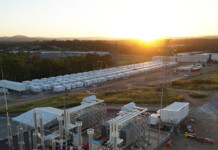Electric vehicle (EV) drivers could be encouraged to shift their charging sessions to times that will save them money while benefiting the energy grid, a new Australian study of driver behaviour has found.
In an experiment that will help shape future pricing strategies for EV charging across the nation, Australia’s largest EV charging platform, Chargefox, partnered with South Australia’s Department for Energy and Mining to conduct the study at a DC fast-charging station at Port Adelaide Plaza in the city’s west.
Related article: V2G virtual power plant begins operation at Flinders Uni
The 12-month trial—one of the first of its kind anywhere in the world—set out to discover whether time-of-use pricing could persuade drivers to charge during periods when solar energy is abundant and wholesale energy prices are at their lowest. Charging in these periods would not only result in savings for the driver, but also support the energy grid and maximise the use of renewables.
Using purpose-built functionality in the Chargefox app and advanced data analysis techniques, several experiments were conducted relating to price of charging, the proportion of renewable energy on the grid, and drivers’ motivations for charging.
The results revealed that time-of-use pricing could indeed influence driver behaviour, though with certain conditions. It was found that price signals are more effective when:
- A per-kWh pricing model is used rather than a per-minute pricing strategy.
- The pricing strategy is simple, easy to understand, and presents a noticeable price gap between different time periods.
- The pricing aligns with drivers’ perceived “reasonable” price based on their home energy rates, plus a margin for infrastructure and convenience.
- The charging station meets or exceeds drivers’ expectations in terms of availability, reliability, speed, and convenience.
The experiments, funded through the South Australian Government’s EV Smart Charging Trial program, also identified two distinct segments of drivers. The “want to charge” segment, which has the flexibility to choose where and when to charge, was found to be more responsive to price signals, whereas “need to charge” drivers prioritised maintaining mobility over pricing considerations.
“The Smart Charge Trial revealed that EV drivers aren’t just looking for the cheapest charge,” Chargefox lead researcher Miles Menegon says.
“Factors like location, convenience, and charging speed also play a big role.”
Menegon says the findings indicated pricing strategies should be designed with simplicity in mind, focusing on per-kWh pricing and minimising complexity and variability.
Additionally, charging stations should offer multiple connectors, particularly CCS2 connectors, to maximise usage at times when renewable energy is abundant on the grid. It was also noted that premium pricing for faster charging is acceptable to drivers, provided that the charging station’s capacity is not artificially limited during peak demand periods.
Related article: Royal Adelaide Hospital unveils rapid EV charging facilities
As an increasing number of electric vehicles hit Australian roads every month, there is a growing realisation that they will play a significant role in the nation’s clean energy future.
South Australian Minister for Energy and Mining Tom Koutsantonis says, “I’m excited by the potential for these findings to make a difference to the state’s electricity grid as a whole. This government prioritises initiatives that maximise the benefits of electric vehicles for all South Australians, including those who cannot afford an EV.”







